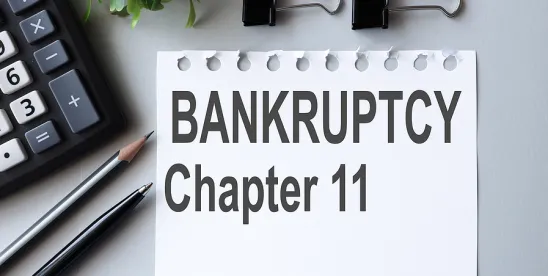In an opinion issued on August 16, 2024 (In re Robertshaw US Holding Corp., Bankr. S.D. Tex., Case No. 24-90052, Docket No. 959), Judge Christopher Lopez of the United States Bankruptcy Court for the Southern District of Texas held that opt-out procedures were sufficient to provide consent for third-party releases in a Chapter 11 plan, reaffirming that the Supreme Court’s Purdue opinion did not change Fifth Circuit law. Other courts (including one in the Fifth Circuit) have recently held that opt-out procedures are not sufficient to create consent for third-party releases and have required that creditors and interest holders must opt in to such releases.
Chapter 11 plans frequently feature provisions referred to as “third-party releases” under which creditors and other interest holders of a debtor release claims against third parties. In the recent opinion in Harrington v. Purdue Pharma L.P., 603 U.S. ----, 144 S.Ct. 2071 (2024), the Supreme Court held that such releases are impermissible without the consent of the releasing parties. Importantly, and as noted by Judge Lopez, the Supreme Court clearly stated that it was not addressing the propriety of consensual third-party releases nor what qualified as consent for such releases. Prior to Purdue, courts in the Second, Third, and Fourth Circuits had allowed non-consensual third-party releases under certain circumstances. In the Fifth Circuit, however, non-consensual third-party releases have long been prohibited. In light of this, Hunton Andrews Kurth LLP recently predicted that bankruptcy courts in the Fifth Circuit were unlikely to alter their practices as a result of Purdue.
In the Fifth Circuit, common practice regarding third-party releases is to provide notice to all parties who would be bound by a third-party release of the release and an opportunity to opt out. Any party who did not opt out would be deemed to consent to the third-party release and would be bound. This typically takes the form of a notice describing the third-party releases, the consequences of failing to opt out, and a box to check if the potential releasee wishes to opt out. Other courts have required that potential releasees opt in, that is, they must check a box to affirmatively agree to provide the third-party releases.
In the wake of Purdue, the United States Trustee has filed several objections to confirmation of plans arguing that opt-out procedures do not constitute consent to third-party releases. Instead, the U.S. Trustee has argued that plans must require potential releasees to opt in to the third-party releases. For the U.S. Trustee, opt-out procedures fail to procure consent because parties who simply do nothing are then deemed to grant broad releases of non-debtor parties.
The U.S. Trustee has pressed this objection in recent cases, including In re Ebix, Inc. (Bankr. N.D. Tex., Case No. 23-80004, Docket No. 795), In re Red Lobster Management, LLC, (Bankr. M.D. Fla., Case No. 24-2486, Docket No. 681), In re BowFlex, Inc. (Bankr. D.N.J., Case No. 24-12364, Docket No. 552), and Robertshaw. While the BowFlex court overruled the U.S. Trustee’s objection (holding, like the court in Robertshaw, that opt-out procedures are sufficient to provide consent for third-party releases), the bankruptcy courts in both Ebix and Red Lobster agreed with the U.S. Trustee’s objection that creditors and interest holders must affirmatively opt in to third-party releases for such releases to be consensual.
However, it is unclear what has changed with respect to consensual third-party releases after Purdue. As Judge Lopez noted in confirming the Robertshaw plan, all the Supreme Court did was hold that non-consensual third-party releases are prohibited. It expressly did not opine on consensual third-party releases or what constitutes consent. Given that bankruptcy courts in the Fifth Circuit (where non-consensual third-party releases were already prohibited) routinely approved third-party releases with opt-out procedures prior to Purdue, there should not be any reason to alter such practice.
It seems clear, however, that the U.S. Trustee intends to continue pursuing this issue, though it has not appealed the confirmation order in Robertshaw as of this date. If courts continue to diverge on what constitutes consent for third-party releases, the Supreme Court may be asked to pick up where it left off and decide exactly what it means to “consent” to such releases.






 />i
/>i

